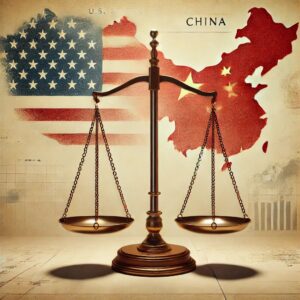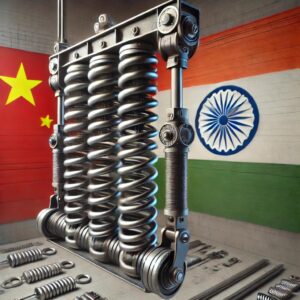China Manufacturing Joint Ventures
Today’s China Manufacturing Landscape
Large parts of China’s manufacturing industry are facing significant disruption.
Large numbers of foreign buyers of Chinese manufactured product have ceased or reduced their manufacturing in China, and even larger numbers are looking to do so. Chinese manufacturers are rightly concerned and the international manufacturing lawyers at my law firm are seeing the results of all this like never before. We are getting massive numbers of emails regarding bad quality product, and far too often there is little we as lawyers can do to help because the foreign product buyer does not have a China-specific contract with its manufacturer that is tailored for manufacturing in China.
Just this week, I spoke with a Canadian company whose Chinese manufacturer had confessed to selling counterfeits of its products in Europe, and stated that they would keep doing this as no contract or law prevented them from doing so. See It’s Perfectly Legal for Your Chinese Manufacturer to Copy Your Products.
Rising Interest in China Joint Ventures
Our China lawyers are also seeing a significant increase in the number of foreign companies seeking to establish a China joint venture, or similar relationship, with their Chinese manufacturer. The high-level thinking on these joint ventures usually goes as follows:
1. Cost Sharing to Reduce Risk: China product risks and costs are rising due to tariffs and duties, and working more closely with the Chinese factory will mean both sides share in these increased risks and costs. See Has Sourcing Product From China Become TOO Risky?
2. Market Expansion: The way for both the foreign buyer and its Chinese manufacturer to reduce risks and to increase sales and profits is to have the Chinese manufacturer sell the foreign buyer’s products in China.
China Joint Venture Viability
Though the rationale for a China joint venture may appear sound, there are usually more effective, cost-efficient, and safer alternatives available.
As we so often write, joint ventures tend to favor the Chinese JV partner and rarely make sense for the foreign company. See China Joint Ventures: The Long Version, in which we explain why our China joint venture lawyers both love them and hate them. In addition to the various problems that come with any business partnership in China, joint venturing with your Chinese supplier has its own special issues/problems.
Few Chinese factories have expertise in marketing products, including their own and when they are both your factory and your joint venture partner, they can be very difficult to monitor. This article I wrote for the Wall Street Journal describes many of these problems. At minimum, foreign companies should evaluate a Chinese factory’s marketing capabilities before becoming a co-owner in a joint venture.
The Benefits of Distribution Agreements
The better way to handle these relationships is usually with a China-centric distribution agreement that sets forth sales goals and allows you to walk away if your Chinese factory does not meet those goals. It usually makes sense to have a trademark licensing agreement with your distributor as well.
A distribution relationship can give you a more controlled and less risky approach compared to joint ventures. They allow you to clearly define sales targets and consequences for unmet goals. This provides a performance-based framework that incentivizes your Chinese partner to effectively market and sell your products. Additionally, in such a relationship it will usually be considerably easier for you to retain ownership of your intellectual property and to maintain greater control over branding and marketing strategies. But similar to joint ventures, distribution relationships also require careful selection and ongoing monitoring of your distribution partner to ensure they align with your business goals.
In most cases, it will be preferable for you to establish your distribution relationship with a company that specializes in marketing and selling your type of product, rather than with your existing manufacturer.
A Very Recent, Very Successful China Manufacturing Joint Venture Deal
But having said this, my law firm recently facilitated a highly beneficial joint venture with a Chinese factory. In this deal, our client — a thriving Euro/US company — was seeking to rapidly scale up its manufacturing capacity and its China JV partner had a high-tech and massive factory that it was utilizing at ten percent capacity. By doing this deal, our client was able to add massive capacity in months not years, and at a shockingly low cost.
Strategic Approaches for a Shifting Manufacturing Landscape
As global manufacturing evolves, foreign companies doing their manufacturing in China will no doubt continue to face challenges. The rising costs, increasing risks and legal complexities highlight the need for robust, China-specific contracts that protect the interests of foreign product buyers. Though joint ventures can offer a pathway to closer cooperation and shared risks, they come with their own set of challenges, and they rarely make sense. Alternative strategies like distribution agreements and licensing deals can provide more control and fewer risks.
To succeed in manufacturing in China, you must find the right balance between risk and reward for your company.

























